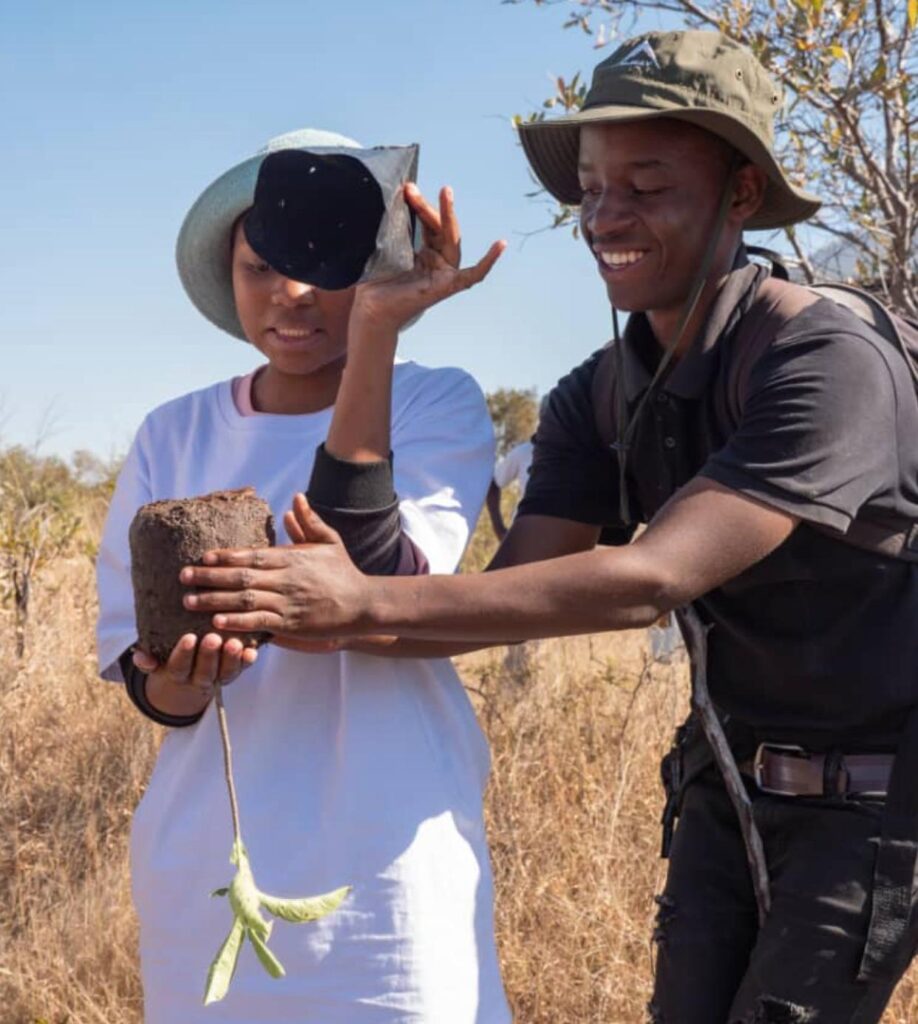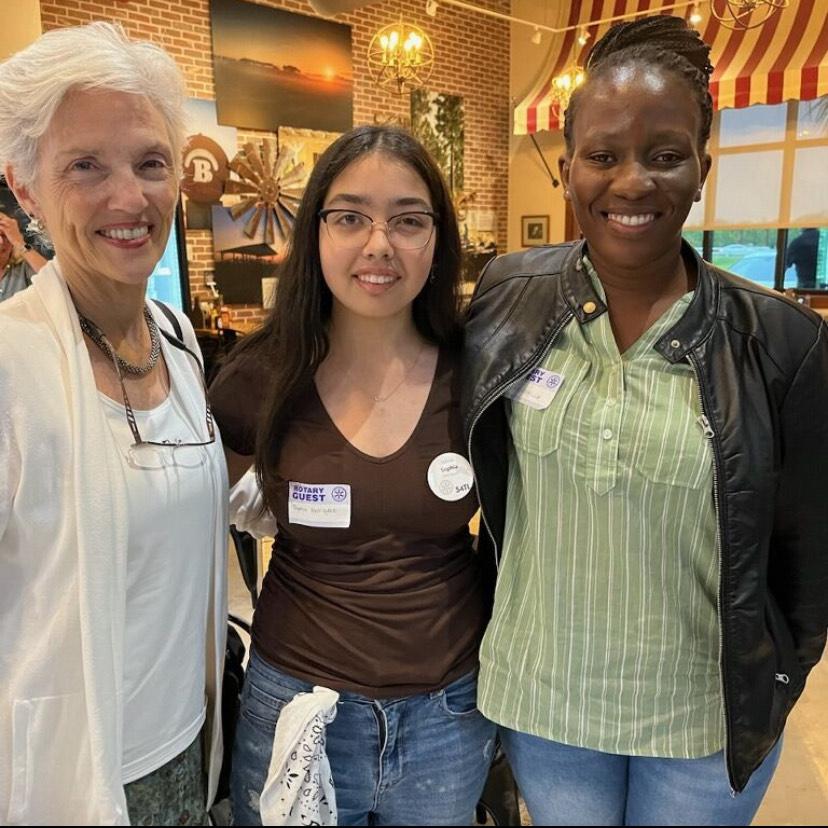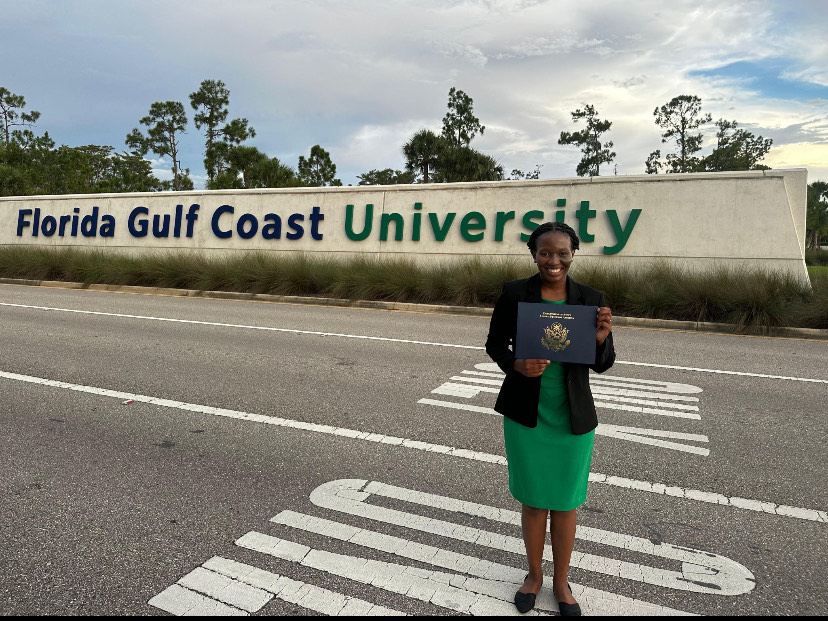By Cinderella Ndlovu
2024 Mandela Washington Fellow for Youth Climate Action
We’re thrilled to report that newly-elected ESRAG Director Cinderella Ndlovu is one of only 42 young leaders from Zimbabwe chosen to be a 2024 Mandela Washington Fellow in the United States. An environmental engineer and member of the Rotaract Club of Matopos in District 9210, she is the founder and Executive Director of the Green Hut Trust, a nonprofit dedicated to mobilizing youth to tackle climate change and promote environmental stewardship.
The Mandela Washington Fellowship is a U.S. Department of State program to nurture emerging young African leaders. This year, 700 fellows were chosen from over 40,000 applicants across sub-Saharan Africa. Of those 700, Cinderella Ndlovu is one of just 100 picked for the professional development track. She spent this internship working with the University of Minnesota Extension Regional Sustainable Development program, delving into clean energy, agri-food systems, and climate change – all integral components of sustainable development goals.
The fellowship began with a six-week leadership curriculum, for which Ndlovu was assigned to Florida Gulf Coast University with 24 other fellows from 19 other countries. While in Florida, she expanded her Rotary network by connecting with Patrice (Pat) Courtney Strong, a Rotarian with the Rotary Club of Babcock Ranch, who is leading a Rotary solar project for Ukraine. Ndlvolu also attended the D 6960 District Conference.
Engineer Ndvolu shared highlights of her American adventure in these notes for our newsletter. Please watch her popular presentation to Weekly Project Seminars, The Role of Youth in Advancing Climate Action.
Climate Change Leadership
As a guest speaker for the Mandela Washington Fellowship (MWF) program curriculum, Rotarian Pat Courtney Strong shared valuable insights on fundraising and building community support for great causes such as the Solar for Ukraine project that she is working on with the Rotary Club of Babcock Ranch and Rotary clubs in Ukraine. These partners are working to bring solar power to clinics and hospitals that no longer have access to the main grid due to the ongoing conflicts that have destroyed major power stations. Her presentation was moving: it showed me how as a leader I can act locally to help solve a challenge which affects many parts of the world.

Green Hut Junior Councillors planting trees at Silwane Nature Reserve during the International Biodiversity day com
After her presentation to us, I approached Pat and took down her contact details. We soon became good friends as she took me to attend her club meeting and to show me the Babcock Ranch solar plant, the biggest I have ever seen. As a newly graduated environmental engineer, I soon hit it off with Pat through conversations on clean energy, a field in which I’m looking to develop expertise. Her Solar for Ukraine project sparked new ideas that I would want to implement in Zimbabwe, where power is also a challenge and moving to cleaner energy is considered a priority.
At the District Conference, I got to see exhibitions of projects that the district is doing to address some of the pressing challenges in America such as mental health interventions and environmental conservation. I also explored innovations from different organizations, such as ShelterBox. Over lunch, I got to talk with Rotarians from all over the State of Florida, telling them about my work with Green Hut Trust and the Mandela Washington Fellowship.
As part of the MWF program, I was tasked with coming up with a focus project that I will be working on when I go back home. I chose to tackle recycling through a project that seeks to work with informal waste pickers to improve the state of waste management. The project will create jobs for them at a plastics and organic recycling plant, for which I am seeking funding and partners.
Funding is always a challenge for a young executive director of an environmental organization. Some funders set very high eligibility criteria, such as many years of experience or very large annual budgets. I hope that the connections I have made and the lessons learnt through this Fellowship and my internship at the University of Minnesota will help me get more grants and other resources.
The most important part of leadership is how well you work with others. I learnt a lot about myself as a leader and ways in which I can improve my relations with my employees and volunteers in my organization. Teamwork is what makes the dream work! My involvement with Rotary has allowed me to work with diverse individuals to achieve common goals. Meeting with other Fellows from all over Sub-Saharan Africa who face the same challenges as I do also allowed me to learn from other young leaders how I can overcome these challenges individually and in my capacity as a leader.
Community Engagement

Rotarian Pat Strong, Interactor Sophia Elise Henriquez, and ESRAG Director Cinderella Ndvolu at the D 6960 District Conference
The University of Minnesota’s extension program works on a variety of sustainability issues including food systems and clean energy. I am hoping to further explore and take away best practices on community engagement in environmental issues, as well as how to form lasting partnerships with funders and donors. Here are three other skills I studied:
- Innovative ways of documenting impact stories and collecting data on the work that my organization does.
- Making environmental projects sustainable and economically viable.
- Meaningfully engaging volunteers.
I also intend to hone my project management and grant writing skills. Kathryn Draeger, the Director of the RSDP program, assisted me greatly with this. I have also had the opportunity to learn from sustainability students and summer interns at the University Institute of the Environment and participated in energy projects with the Clean Energy Resource Team.

